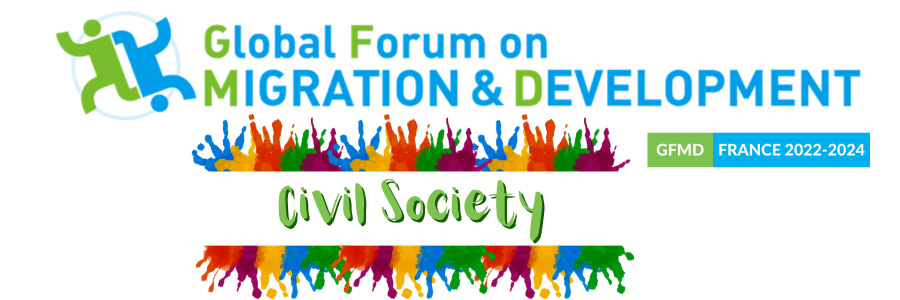Inclusive social protection, expanded regular pathways, better data and strong partnerships highlighted by roundtable participants.
On day three of the 13th Global Forum on Migration and Development (GFMD) Summit, some 240 delegates gathered for a roundtable discussion on Approaches to Preventing Irregular Migration.
Opening the discussion, co-chair Ambassador José Luis Pardo of Spain described irregular migration as “contentious, divisive and unavoidable,” and emphasized the need for stakeholders “to build a common ground to find common responses.” Co-chair Ambassador Hector Constant Rosales of Venezuela similarly described the topic as a “global and multi-sectoral issue, which must be tackled in order to ensure the inclusion of all migrants in our societies.”
Introducing the session background paper, Kathleen Newland of the Migration Policy Institute echoed Ambassador Pardo by stating: “Irregular migration is one of the most difficult issues to take up in a multi-stakeholder environment, as discussion is often highly polarized.”
Newland urged that returns should not be seen through the lens of migration management, and that countries of destination should instead recognize the challenges it presents for both countries of origin and irregular migrants themselves. She also pointed to the scarcity and disputed nature of data on irregular migration, stating that “without good data, we are condemned to grope in the dark for good policy choices.” Newland concluded by emphasizing the importance of partnerships at all levels to tackling irregular migration, and urging policymakers to better understand both the magnitude of irregular migration and the motivations of irregular migrants.
“Low-paid, unskilled and informal workers are the most vulnerable to loss of rights, and increasing regular pathways will decrease this vulnerability.”
Masud Bin Momen, Foreign Secretary of Bangladesh
Roundtable speakers and participants addressed discussion questions set out in the background paper in three focused sessions.
Addressing the question, What actions or processes lead to a decline in irregular migration, and what role does policy play?, Michele LeVoy of the Platform for International Cooperation on Undocumented Migrants (PICUM) highlighted three key points:
- The human rights of irregular migrants have long been confirmed by international standards and guidelines, and the task is now to “close the gap between international standards and national and regional practice”;
- Policymaking should reflect the reality of irregular migration, in which the majority of undocumented persons migrate regularly and losetheir legal status post-arrival; and
- Ensuring access to healthcare and COVID-19 vaccination programs for undocumented migrants is “smart public health policy,” and data-sharing firewalls must form part of this provision.
Reflecting on the question, What is the relationship between increased opportunities to migrate through regular channels and the prevalence of irregular migration?, panel speakers uniformly acknowledged the lack of reliable data on which to base policy responses to irregular migration. Youth speaker CS Akhil stated that “the lack of data causes countries of origin and destination to use ‘guesstimate’ in order to make policy,” and emphasized the need for better information on regular pathways for potential migrants in countries of origin.
Bangladeshi Foreign Secretary Masud Bin Momen stated that “it is low-paid, unskilled and informal workers who are the most vulnerable to loss of rights, and increasing regular pathways will decrease this vulnerability.” Sara Al-Khatib of the Solidarity Center identified a failure to impose penalties on employers that violate migrant rights as causal in forcing migrants to choose to move irregularly.
Addressing the final question, What characteristics of national migration laws and practices encourage irregular migration, and how can these be changed?, speakers highlighted weaknesses in asylum and immigration systems of destination countries that encourage irregular movement and entry, including:
- Asylum systems that are slow to adjudicate claims;
- Unclear immigration regulations and misinformation;
- Regular migration pathways that do not respect the right to family life; and
- Widespread informal work and a failure to enforce legal requirements for work.

